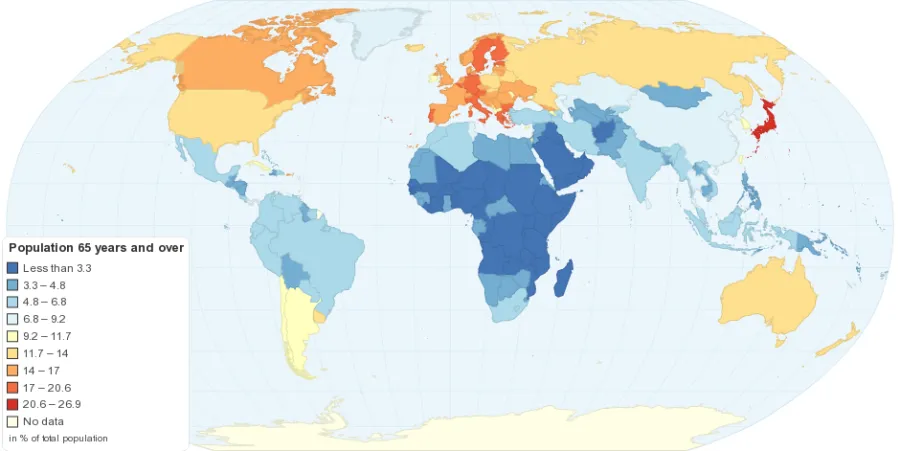
Will they still need me when I’m 64?
By Wander MeijerA friendly headhunter stated clearly in his blunt language: “We don’t recruit guys like you for executive positions at international companies; you are too old. If you want to do something different, start your own business”.
I did not take it personally – at my own global employer I hadn’t seen a senior appointment of anyone my age since I turned 50 a few years ago. It does however bother me in the bigger scheme of things – the world is ageing quickly and side-lining a growing part of the work force does not benefit anyone.
See Figure 1.
Age determines happiness. People are at their happiest at young and at an old age and least happy during the infamous mid-life.
Age defines sexuality, as any woman knows and what many men should know when they think they’ve still got it on the dance floor, while everyone else can see that they don’t. Fortunately that moment seems to occur later in Asian dance venues than it does in Europe.
The West and the East put different values on age, prevalent in the way the East reveres parents, wisdom or chooses it leaders.
Barack Obama has just been re-elected President at the age of 51, David Cameron became Prime Minister of the UK at 43, and my home country, the Netherlands also elected his equivalent at the same age, a man who still looks and behaves like a student.
It isn’t necessarily better or worse, but it is certainly different in Asia.
India’s leader, Manmohan Singh is 80 years old, and the new Chinese Politburo Standing Committee counts an average age of 63.4 years. Jiang Zemin, who allegedly had a hand in the appointment of 6 out of 7, is 86.
Age also drives the business world. Senior executives at Western companies are happy to retire when they are 60 or 65, worn out by heavy travel schedules and endless financial quarterly reviews.
In contrast, Hong Kong most famous tycoon Li Ka Shing is now 84 and shows no sign of slowing down.
What will Mark Zuckerberg, CEO of Facebook (28 years) or Larry Page, Google’s CEO (39) be doing when they are 84?
Having said that, in the USA people are working at a much higher age than in Europe, notably in aviation, where most flight attendants continue working far beyond European retirement age.
While not particularly good for the passengers, it is better for the US economy. Overall, the labor force participation rate in Europe is much lower than in the US or in Hong Kong or China, as can be seen on Figure 2:
See Figure 2.
Age has a tremendous effect on the economy. Countries with the biggest fiscal and economic problems are the ones with the lowest labor participation / oldest populations.
Nevertheless, convincing a population, who live on average 15 years longer and healthier than 60 years ago, to extend their working life by 1-2 years is one of the most difficult political battles in Europe, arguably because companies don’t want elderly employees anyway.
Dealing with an ageing population is one of the biggest challenges of our times, effecting healthcare, labor participation, family structures, pensions. The golden age of well-paid early retirement is over forever.
And companies who are innovative and can successfully accommodate elderly employees by being more flexible in work offering, timings and tasks will get a competitive edge over narrow minded enterprises.
Meanwhile, I’ve decided to defy the ageing process. I went hiking in the Himalayas with my sons last month and am about to prove the friendly headhunter wrong – a good story for my next blog.









![Cross Domain [Manu + SBR + ABF + ABR + FMCG + HBR + ]](https://cmg-qa.s3.ap-southeast-1.amazonaws.com/s3fs-public/styles/exclusive_featured_article/public/2025-01/earth-3537401_1920_4.jpg.webp?itok=WaRpTJwE)









 Advertise
Advertise


